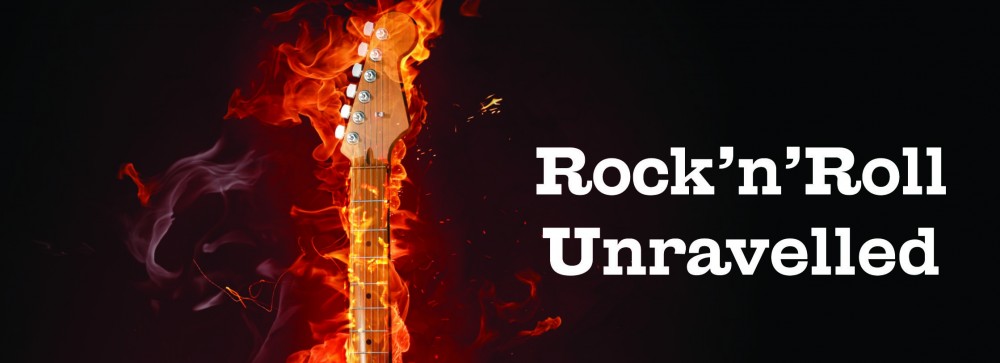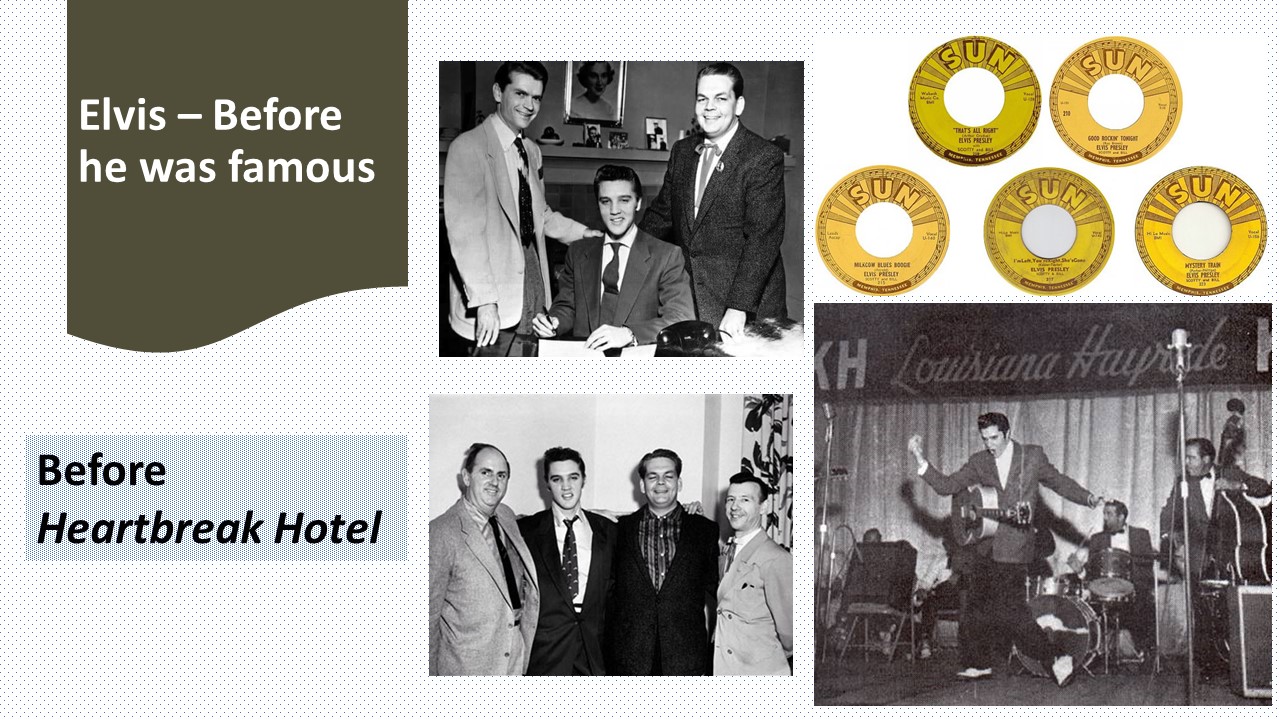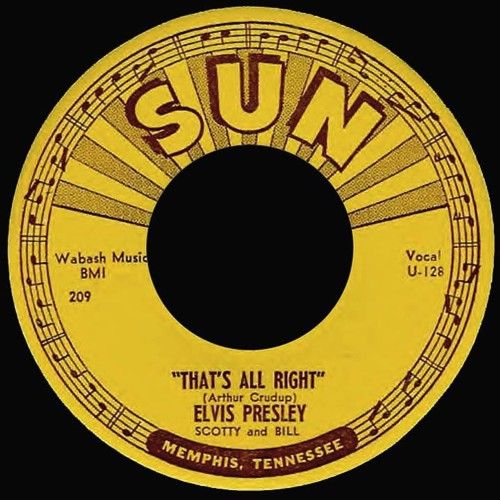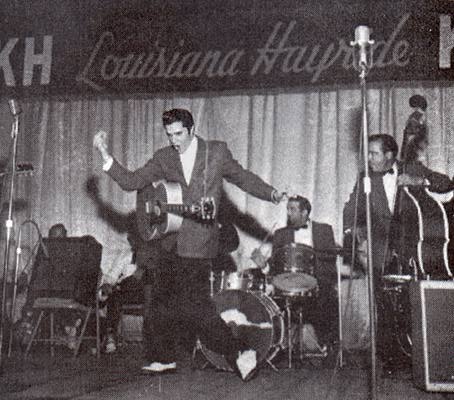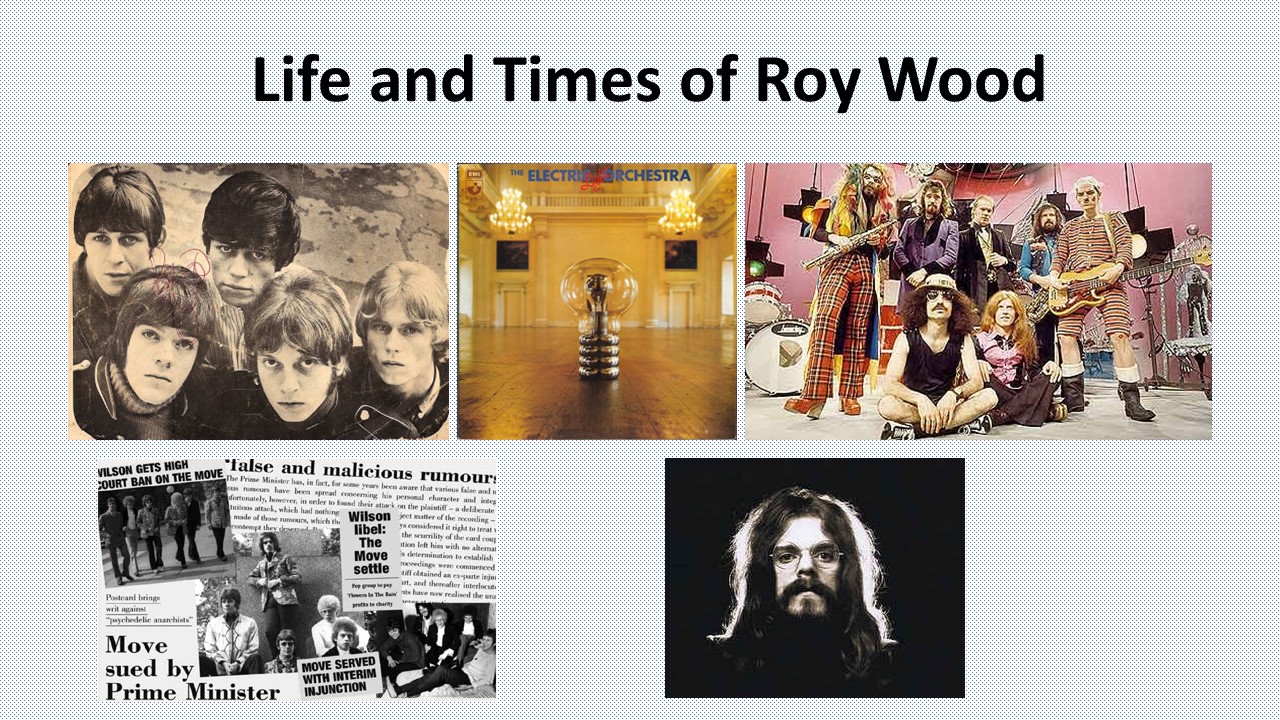Elvis Before He Was Famous
Elvis Presley, The King of Rock’n’Roll, had three distinct careers:
In the 1950s it was Elvis Presley’s rock’n’roll years, when he was the King of Rock’n’Roll.
He reinvented himself when he came out of the US Army. In the 1960s he was a Hollywood matinee idol. He starred in 31 movies. The last one, Change of Habit, was released in November 1969.
A brand-new Elvis emerged in the 1970s, as the ultimate Las Vegas cabaret star.
This blog looks at the early 1950s. The early years – Elvis before he was famous.
Birthplace
Elvis was born in Tupelo, Mississippi on 8 January 1935 to Gladys Love and Vernon Presley. He grew up in the family home at 306 Old Saltillo Road, East Tupelo, Mississippi. Sadly, his twin brother, Jesse Garon, died at birth. Vernon was sentenced to three years imprisonment for forging a cheque, when Elvis was 3 years old. Religion played an important part in Elvis’s upbringing. He was a regular attendee at the Pentecostal, First Assembly of God Church in East Tupelo. As a result, Gospel music became an important influence on Elvis’s music.
First Public Performance
Elvis gave his first public performance on 3 October 1945, at a talent competition held during the Mississippi-Alabama Fair and Dairy Show. His rendition of Red Foley’s Old Shep gave Elvis fifth place in the competition.
On his eleventh birthday, in 1946, he received his first guitar as a birthday present. Forrest L. Bobo served him that day at the Tupelo Hardware Company. Bobo remembers that, “he wanted to buy a .22 calibre rifle and his mother wanted him to buy a guitar”.
Around 1948 the Presley family relocated to Memphis, where they moved into federal-funded accommodation at 185 Winchester Avenue, Lauderdale Courts.
In 1951 Elvis worked briefly at Precision Tools. However, this came to an end when it was discovered that he was working underage. He graduated from Humes High School on 3 June 1953 as a part of Class 202. Following this, he worked as a truck driver for the Crown Electric Company.
Elvis before he was famous – 1953
Private Recordings
Elvis’s first private recording session, on 18 July 1953, took place at Sam Phillips’ Memphis Recording Service. For the princely sum of $3.98, he recorded My Happiness and That’s When Your Heartaches Begin. Sam Phillips’ assistant Marion Keisker asked Elvis who he sounded like. He famously replied, “I don’t sound like nobody”. The jury’s out on who operated the tape that day, Sam Phillips or Marion Keisker . Doubt has also been cast on the idea that the recording was a birthday present for his mother Gladys. If it was a present, it was rather belated. Her birthday was on 25 April, nearly three months earlier.
Six months later, on 4 January 1954, Elvis cut his second private recording at the Memphis Recording Service. This time he recorded I’ll Never Stand in Your Way and It Wouldn’t Be the Same Without You.
Fred Rose co-wrote both songs. Rose was an important country music figure and founded the Acuff-Rose music publishing company in Nashville in 1942.
Some sources list Casual Love Affair as the second song recorded that day. Master and Session: Elvis Presley Studio Recordings’ website suggests that, “When this acetate was discovered a few years ago it turned out that the second song was It Wouldn’t Be the Same Without You, instead of Casual Love Affair”.
Elvis before he was famous – 1954
First Sun Single – That’s All Right
When Elvis made his second private recording at the studio he impressed Sam Phillips. So much so, that Phillips looked out for a song to suit Elvis’s voice. On a trip to Nashville, Phillips came across the song Without You. He called Elvis to come into the studio and try it out. Unfortunately, it didn’t go too well. Although, rather than give up on Elvis he introduced him to guitarist Scotty Moore and upright bass player Bill Black. During their jam sessions the trio tried out some other songs. Phillips’ persistence certainly paid off when they played That’s All Right.
Elvis recorded That’s All Right during his first Sun recording session on 5 July 1954. Scotty Moore played guitar, Bill Black was on upright bass and Sam Phillips was at the controls.
A few days later Sam Phillips gave Memphis DJ Dewey “Daddy-O” Phillips, no relation, a copy of That’s All Right to play on his show. Consequently, Dewey Phillips became the first DJ to play Elvis, on his Red, Hot and Blue show, Radio WHBQ.
That’s All Right was coupled with Blue Moon of Kentucky and released as Elvis’s first Sun Records single on 19 July. The label credited, “Elvis Presley with Scotty and Bill”. Both sides were cover versions of 1940s songs. Arthur “Big Boy” Crudup wrote and originally recorded That’s All Right in 1946. The following year Bill Monroe and His Bluegrass Boys wrote and released Blue Moon of Kentucky.
Second Sun Single – Good Rockin’ Tonight
Elvis’s second Sun single, Good Rockin’ Tonight c/w I Don’t Care if the Sun Don’t Shine was released on 22 September. Once again, they were both cover versions. Roy Brown wrote and originally released Good Rockin’ Tonight in the autumn of 1947. It failed to make an impact until it was covered by Wynonie Harris. His version entered the R&B charts in the summer of 1948 and remained there until the end of the year. Patti Page scored a hit with the Mack David penned I Don’t Care if the Sun Don’t Shine in 1950.
The Grand Ole Opre is the spiritual home of country music. Elvis played there just the once, 2 October. The country audience didn’t warm to his style, resulting in a decidedly lukewarm reception. The Opry’s manager, Jim Denny, spoke to Elvis backstage after his performance. He suggested that Elvis should “consider giving up singing and return to truck driving”. Luckily, the soon-to-be King of Rock’n’Roll didn’t take his advice.
In an ironic twist of fate, Elvis’s first showing on the national charts was in the Billboard Country Top-40 in July 1955 with Baby Let’s Play House.
Louisiana Hayride
Things started to look up for Elvis after he appeared on the Louisiana Hayride on 16 October 1954. The audience really took to him and as a result, he was invited back the following week. The Louisiana Hayride was an influential country music show, syndicated on radio stations across much of the South and West. This provided Elvis with exposure to a wider audience. Elvis signed a one-year contract with Louisiana Hayride on 6 November.
Elvis’s one and only advertisement appeared during the opening show of this one-year contact on the Louisiana Hayride. Elvis told his audience, in a jingle for Southern Maid Donuts, “You can get ‘em piping hot after 4 pm, you can get ‘em piping hot. Southern Made Doughnuts hit the spot, you can get ‘em piping hot after 4 pm”.
Elvis before he was famous – 1955
First Manager, Bob Neil
At the beginning of January 1955, Bob Neal signed Elvis to a management deal. Elvis was originally managed by guitarist Scotty Moore. Neal initially helped Scotty Moore out but eventually took over the full management of Elvis.
The third Sun single, Milkcow Blues Boogie c/w You’re A Heartbreaker, was released on 8 January. Kokomo Arnold took the writing credit for Milkcow Blues Boogie and recorded it himself in the mid-1930s.
Elvis met his soon-to-be manager, Colonel Tom Parker, for the first time at the Louisiana Hayride on 15 January. Parker previously managed Eddie Arnold.
On 25 April the fourth Sun single, Baby Let’s Play House c/w I’m Left, You’re Right, She’s Gone was released. Arthur Gunter wrote and originally released Baby Let’s Play House in 1954.
Elvis released his fifth and final Sun single, I Forgot to Remember to Forget c/w Mystery Train 1 August 1955.
Sun stable-mate Jr Parker released Mystery Train as Little Junior’s Blue Flames in 1953.
DJ Fontana joined Elvis as full-time drummer in August 1955. British beat group singer, Wayne Fontana took his stage name from Elvis’s drummer. He went on to find fame as Wayne Fontana and the Mindbenders.
Colonel Tom Parker – Move to RCA
Tom Parker became Elvis’s manager on 15 August 1955. At that time he was still with his original manager Bob Neal. The two managers worked together. Neal provided gigs in the local Southern States, whilst the Colonel came on board to broaden Presley’s horizons. Bob Neal was Elvis’s manager for a little over a year.
Elvis signed to RCA on 21 November, with a signing ceremony at Sun Records in Memphis. Sam Phillips sold his Elvis Presley contract to RCA for $35,000. With an additional $5,000 payment to Elvis for outstanding royalties on his Sun records. The deal included released and unreleased songs.
In December RCA re-released all five of Elvis’s Sun singles on the RCA label. None of them troubled the Billboard Top-40.
Elvis before he was famous – 1956
Rise to Fame
Elvis recorded his breakthrough single, Heartbreak Hotel, at his first RCA recording session on 10 January 1956. The backing band included: his Sun buddies, guitarist Scotty Moore and upright-bass player Bill Black; new regular drummer D.J. Fontana; and Nashville session musicians, guitarist Chet Atkins and pianist Floyd Cramer.
Tommy Durden and Mae Boren Axton wrote the song, although, Elvis also received a song writing credit.
A newspaper article headed “Do You Know This Man?” provided the inspiration for the song. The paper wanted to identify a man who had killed himself and left a note simply saying, “I walk a lonely street”.
Elvis Presley’s first single, Heartbreak Hotel, was released on RCA in America on 27 January. It gave him his first Billboard Top-40, entering the chart on 10 March and spent 8 weeks at #1.
It was also a hit on Billboard’s Country and R&B charts.
1st Billboard R&B Top-40 hit – peaked at #3
5th Billboard Country Top-40 hit – spent 17 weeks at #1
Released in the UK, it entered the charts in May 1956 – peaked at #2
The UK release was on the HMV label because RCA had a UK distribution agreement with EMI/HMV. The first few UK releases were on HMV but this changed as a result of RCA creating its own UK distribution network.
